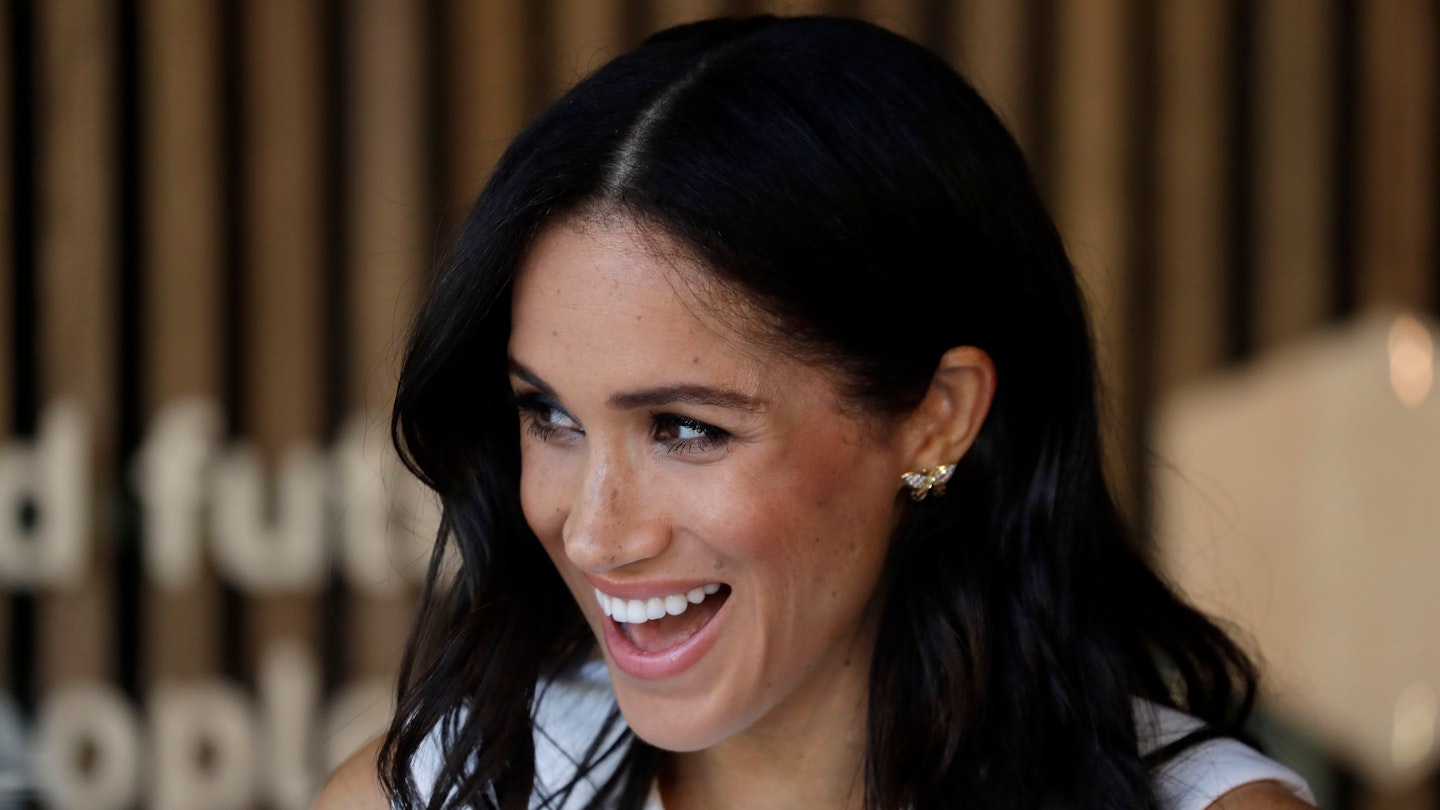Meghan Markle is great, isn’t she? My lifelong disinterest in the royal family reversed itself when she came along. Because, in Meghan Markle, I saw myself writ large (or at least richer and more stylish).
There she was, a mixed-race woman (just like me); a bit foreign (just like me); marrying into an exclusively white-European family – just like me! Of course, I’m not a famous American actress who married a prince. I am a slightly down-at-heel Asian-European writer who married a man from Kent who’s a bit German. But apart from that, and the fact that I suspect she doesn’t wear jeggings quite as often as I do – honestly – we could be sisters.
And now we have another thing in common: we both became pregnant at the age of 37.
For most of my life I wasn’t bothered about babies. However, at 37 I changed my mind and (in what I now know is an immense stroke of luck) became pregnant almost immediately. So, based on my experience, here is what “older” mothers like Meghan Markle can expect during their pregnancies:
1. The medical terms you hear might seem a bit judgey
'Geriatric pregnancy' is the term if you’re pregnant and over 35 or 40 (this seems to vary from doctor to doctor). Are you picturing some ovaries in a hairnet? Because I am. And if that term isn’t enough to offend a woman chock-full of baby hormones, you’ll probably find the words “ADVANCED MATERNAL AGE” scrawled all over your maternity notes.
2. You will become familiar with the word ‘risk’
Pregnant women in their mid-30s and beyond have a higher risk of diabetes, pre-eclampsia, high blood pressure, miscarriage, and having a baby with Down’s Syndrome, which can be a lot to get your head and heart around.
My own unborn son was given a one-in-18 chance of developing Down’s, and a one-in-12 chance for having a far more serious condition that would most likely have ended his life in the womb. In the end he was fine, but the test (a long needle through the belly) and the wait for the results was traumatic – plus I went on to develop gestational diabetes, anaemia, and severe morning sickness. While the pregnancy risks associated with “being older” may narrow the options your caregivers give you, how you give birth is always your choice, so it’s important to know your rights.
3. People may throw numbers at you
“Haven’t you considered,” some people asked me. “That by the time your child goes to senior school, you’ll be pushing 50?” “But what’s wrong with being 50?” I’d reply. We are an ageing population; I come from a long line of women who live long into their 90s; and my own father died when he was 35 – so as far as I’m concerned if I’m still around for my children when I’m 50, that’s great news.
The fact is, the number of women giving birth in their forties has doubled 20 years. What’s more, while conception rates in other age groups are going down, “older” mothers are having more babies. So it looks like late motherhood is here to stay.
This is certainly the case for the 465 members of the We Are Geriatric Mums Facebook group, which 42-year-old expectant mother, Lucy Baker, set up following the success of her Geriatric Mum blog.
'I started the blog after I searched online following my positive pregnancy result, and couldn’t find a place where I fitted in.
'Since I set up the Facebook group five weeks ago, many members have described how delightful it is to find a place to share their experiences as an older mum. The feeling of being too old for the NCT class or the local baby group comes up a lot and women have had “oh you must be his grandma” thrust towards them at these types of baby social settings, which is always a knock to confidence as a new mother.
'The caring messages between the members is real and heart-warming. We have a mix of first-time mums, IVF mothers, remarried women, same-sex couples, single women who want children, mums of older children with surprise pregnancies, and others. They are sharing stories of pregnancy, fertility, loss, perception and more. There is a mutual respect for the more mature mother and no one is bursting another’s bubble with horrific birth stories and scaremongering.
'The common theme is that although we’re older, and just as vulnerable and hungry for information and care as younger women. And many of them say that casual comments or references to age from midwives, GPs and health visitors does add to the worry of pregnancy. When I read in my consultant notes “despite her age of 42” it didn’t fill me with confidence, and I think it’s time to rethink how women are being categorised just because of age.'
Personally, I’m happy that Meghan Markle’s happy news can be happy news for all our geriatric mums. Not least because hopefully looking at Meghan’s youthful face next to the word “geriatric” should help everyone realise that this – and many terms used to describe women in general – is unhelpful and archaic.
And that if my children (yes, I had another son – this time when I was three days shy of turning 42) – are ever teased about having an old lady for a mum, they can just factor Meghan Markle into some sort of pithy comeback.
And, finally, so that no one has to feel like crap when they look at their maternity notes and read the words 'despite her age of 42.'
